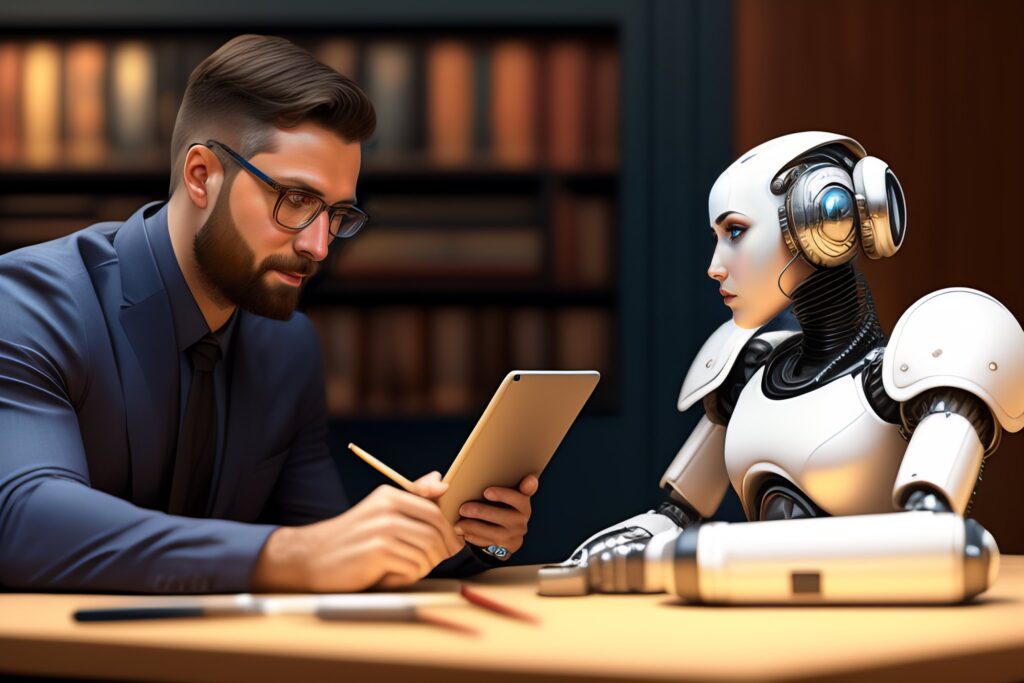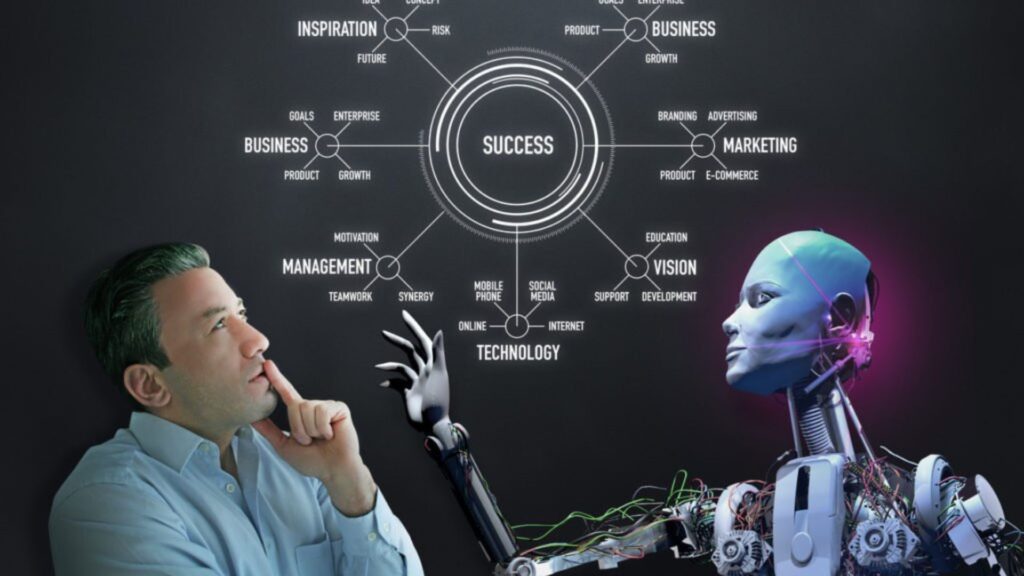AI’s capabilities are rapidly evolving, from complex algorithms to virtual assistants managing daily tasks, making it more than just science fiction. This has sparked a fascinating debate: artificial intelligence vs human intelligence.
But rather than pitting them against each other, this article explores a different perspective. We’ll delve into the unique strengths and weaknesses of both AI and human intelligence, highlighting the potential for a powerful collaboration that bridges the gap and propels us toward a brighter future.
AI vs. Human Intelligence: A Tale of Two Minds
Imagine a world where machines can crunch massive datasets in seconds and humans can solve complex problems with ingenuity. This is the reality we’re approaching with the rise of artificial intelligence (AI). But in the debate of artificial intelligence vs human intelligence, how do they compare?
AI and human intelligence have wonderful strengths. AI is adept at processing huge quantities of information and figuring out patterns, whilst human intelligence is characterized by creativity, vital questioning, and empathy. It permits trouble-solving, and flexibility, and fosters social focus, which is vital for navigating the complexities of the human global.
While both AI and human intelligence have limitations, understanding these distinctions in the artificial intelligence vs human intelligence landscape paves the way for a powerful collaboration.
Strengths of Artificial Intelligence (AI): A Machine Mind’s Power

In the ongoing discussion of artificial intelligence vs human intelligence, AI boasts an impressive repertoire of strengths that are revolutionizing various fields. Medical diagnosis has advanced thanks to AI’s capacity to manage enormous volumes of data, including millions of medical pictures. AI algorithms can discover tiny patterns and connections that people would miss, which leads to very accurate mammography illness diagnosis. One example of this is the identification of cancer.
The energy of AI, setting it apart in the synthetic intelligence vs human intelligence debate, is its potential to pick out complex patterns inside statistics. AI is an effective tool that appropriately predicts marketplace moves by studying past tendencies, economic facts, and social media opinions, and also provides resources in fraud detection, real-time financial transaction evaluation, and anomaly identification.
AI can correctly do monotonous jobs, liberating human workers to concentrate on greater difficult ones. Its promise even extends to self-riding vehicles, wherein artificial intelligence (AI) makes use of massive records processing and sample recognition to handle actual-time statistics from cameras and sensors to permit safe and effective navigation.
Strengths of Human Intelligence: Beyond the Machine
In the artificial intelligence vs human intelligence debate, while AI impresses with its data-crunching abilities, human intelligence offers a distinct and irreplaceable set of strengths.
Human intelligence is characterized by using creativity, problem-solving talents, and emotional intelligence. Creativity allows us to generate new ideas, create captivating memories, and compose music that stirs feelings, surpassing the skills of AI. This creativity lets us push obstacles, invent groundbreaking technologies, and conceptualize solutions to complicated troubles.
Our trouble-fixing capabilities enable us to analyze situations, become aware of underlying reasons, and increase progressive solutions, permitting us to evolve to unforeseen instances and navigate the complexities of the actual international. Emotional intelligence, which encompasses empathy, social cognizance, and dating-building, fosters collaboration, accepts as true and navigates social dynamics.
This emotional intelligence is crucial for effective communication, leadership, and building a cohesive society – areas where machines currently fall short in the artificial intelligence vs human intelligence comparison.
Human intelligence is a result of instinct and the ability to analyze from enjoyment. It allows us to make judgments based totally on incomplete information, drawing on past studies and our sense of property, permitting us to navigate uncertainty and make knowledgeable decisions in real-time, putting us apart from machines counting on pre-programmed facts.
The Power of Collaboration
The debate surrounding artificial intelligence vs human intelligence often focuses on competition. However, the true potential of AI lies not in replacing human intelligence, but rather in working alongside it. Imagine a world where AI’s strengths complement human expertise, leading to groundbreaking advancements across various fields.
AI and human intelligence are taking part in revolutionizing fields like healthcare and product improvement. AI can examine tremendous amounts of medical facts, identifying styles and connections that human beings struggle to pick out. Human intelligence, with its creativity and trouble-solving capabilities, can use those insights to develop modern hypotheses and experimental designs.
AI can examine clinical pics with amazing accuracy, highlighting ability abnormalities for docs. In product development, AI can examine purchaser facts and perceive rising developments, enabling designers to create user-centric merchandise. Companies like IBM and Microsoft are embracing this collaborative technique.
Conclusion:
In conclusion, this article explored the fascinating landscape of the artificial intelligence vs human intelligence debate.
The look highlights the strengths of AI and human intelligence, such as records processing and creativity, as powerful collaborators, paving the manner for a destiny of innovation and development.
As we move forward in the artificial intelligence vs human intelligence discussion, responsible AI development and a focus on human-AI collaboration are crucial.
AI enhances human capabilities and no longer replaces them. Collaborating with human intelligence can bridge gaps, address complicated demanding situations, foster creativity, and enhance the world for all.


